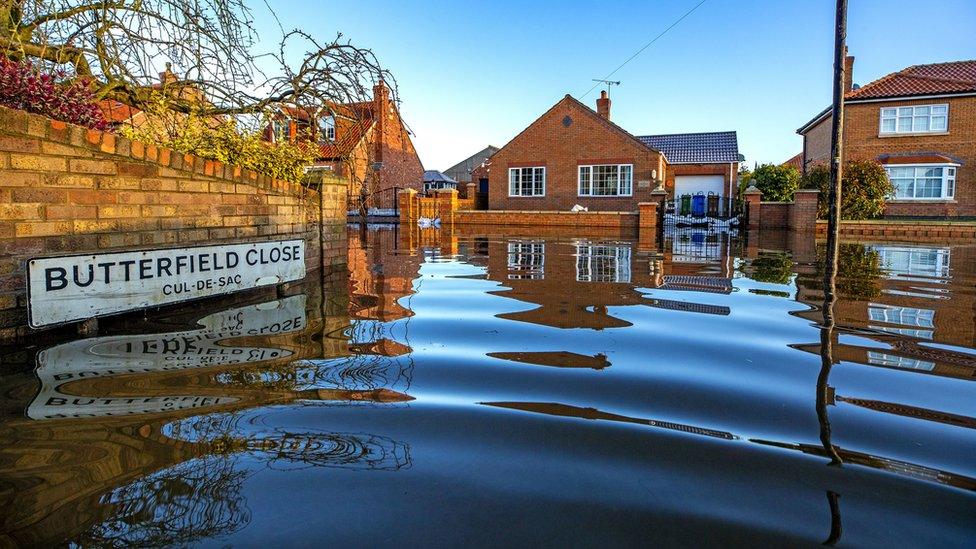Climate-related deaths fall in England and Wales - ONS
- Published

Climate-related deaths in England and Wales fell between 2001 and 2020, according to a new analysis of data by the Office of National Statistics.
Hot days saw more injuries, violence and suicide but the relatively small rise in deaths was offset by warmer winter temperatures resulting in fewer.
Climate change is a substantial threat to human health globally.
Scientists do not yet have enough information about the health impact to make a prediction about the future.
But the trends showing a changing climate are very clear, ONS epidemiology in climate and global health head Myer Glickman told BBC News.
Warmest years
The new analysis, external was experimental, he said. The method would be developed and improved.
And future assessments should look at local, rather than national average, temperatures and local health data.
Previous research links heatwaves with deaths from heart or breathing conditions.
In the UK, the period 1991 to 2020 was 0.9C warmer than 1961 to 1990, according to the Met Office.
And the 10 warmest years recorded have been since 2002.


Statistics can be slippery, as these new climate-death figures show.
The headline climate-related deaths in England and Wales have fallen is encouraging, suggesting warmer winters are offsetting the negative effects of hotter summer days.
But dig a bit deeper and lots of other factors are at play.
Improved insulation, more help with fuel bills for the elderly and vulnerable and widespread flu jabs will also have reduced the winter death toll.
This is why the ONS describes these figures as "experimental" and says more work is needed to separate out the relative role of these different drivers.
That is the key point here.
We do not yet know how seriously climate change will affect our health but we do know it "has already begun to cause irreversible damage to our planet", according to the UK government.
So the important thing is more attention is being given to this crucial issue - because the better we understand the risks, the better able we should be to plan for them.

Related topics
- Published12 October 2021

